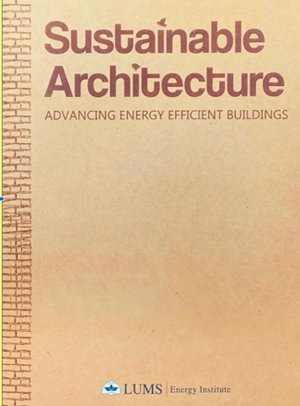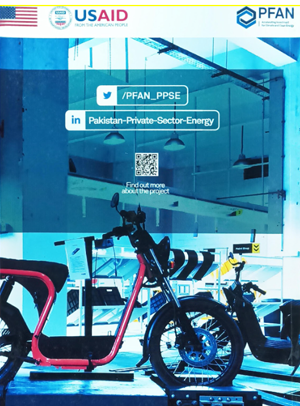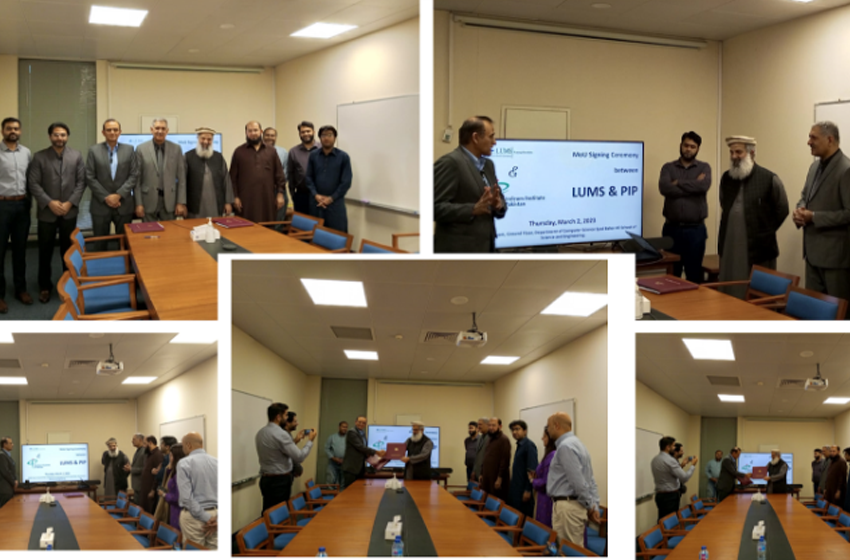Power Sector Improvement Activity
The LUMS Energy Institute (LEI) continued its support and advisory services to the Power Sector Improvement Activity (PSIA) – a four-year USD 23 million USAID-funded programme. The aim is to increase power sector competition through market development, improve management and operation of the power system, optimise grid electricity load, and ultimately reduce electrical costs.
LEI developed the integrated system planning (ISP) framework for the National Power Construction Corporation Pvt. Ltd. (NPCC) which will pave the way for a robust and coordinated system plan that integrates the functions of long-term demand forecasting, generation planning, and transmission and distribution planning. This will ensure an affordable and reliable power supply for the consumers over the long-term. LEI also deployed resources in providing assistance to the government of Pakistan in increasing solar power generation to displace imported thermal fuels, modelling and analysis in developing the transmission system expansion plan (TSEP) and exploring modern technologies and targeted initiatives to increase baseload and maximise electricity use.
The Centre delivered trainings to more than 100 participants under the banner of Power Sector Center of Excellence (PSCE) – a capacity-building hub for the energy sector at LUMS. These covered areas like medium-term demand forecasting, transmission planning and generation planning.
Advancing Energy Efficient Buildings
In December 2023, LEI released a groundbreaking report titled, Sustainable Architecture that analyses the suboptimal housing structures and imprudent construction practices that have led to an inefficient use of energy. Tailored for homeowners and the construction industry, it calls for a paradigm shift in housing construction methodologies, emphasising sustainable practices and fostering a more resilient energy future.
The publication carries illustrations guiding the reader about a transformative exploration of architectural practices in Pakistan. Each section in the report unveils a layer of the energy inefficiency conundrum, navigating through energy-efficient building designs, the integration of renewable energy sources, and the judicious use of energy-efficient appliances. It also demonstrates the possibility of nearly a 30% decrease in peak demand by adopting energy efficient measures.
Sustainable Architecture is an excellent manifesto for change, aiming to guide development authorities, building owners, and regulatory authorities towards creating energy-efficient structures. It emphasises reducing power demand, particularly during summers, through highlighted measures, which in turn contributes to environmental sustainability, enhancing energy security, lowering costs, promotes economic efficiency, drives innovation, and creates green job opportunities.


Indigenisation of EV Value Chain in Pakistan for Two-and-Three Wheelers
In 2023, LEI collaborated with the Private Financing Advisory Network (PFAN) and USAID to conduct a study on the indigenisation of the Electric Vehicle (EV) Value Chain in Pakistan, specifically focusing on two- and three-wheelers. This study underscores the significance of electric two-and three-wheelers for the country since this segment holds over 80 per cent share in Pakistan's entire transportation network . The Report provides an in-depth analysis of the current state of the electric two-and three-wheeler industry, potential opportunities in the short, medium, and long term as well as the financing challenges encountered by manufacturers and users of these wheelers in Pakistan. To mitigate these challenges, the Report recommends access to financing options for EV purchases, along with initiatives to promote gender equality and social inclusion within the subject segment, including the introduction of subsidised financing schemes.
Partnerships
The Centre has signed an MoU with Pakistan Petroleum Institute to collaborate for research projects, modelling tools, and analytical work. Specific areas include power and energy planning, capacity-building, development of a comprehensive database, data analytics and putting forward policy recommendations. LEI has also expanded its collaborative efforts by participating in policy advocacy with local organisations such as SDPI, Renewables First, PRIED, IEEFA and PIDE.


